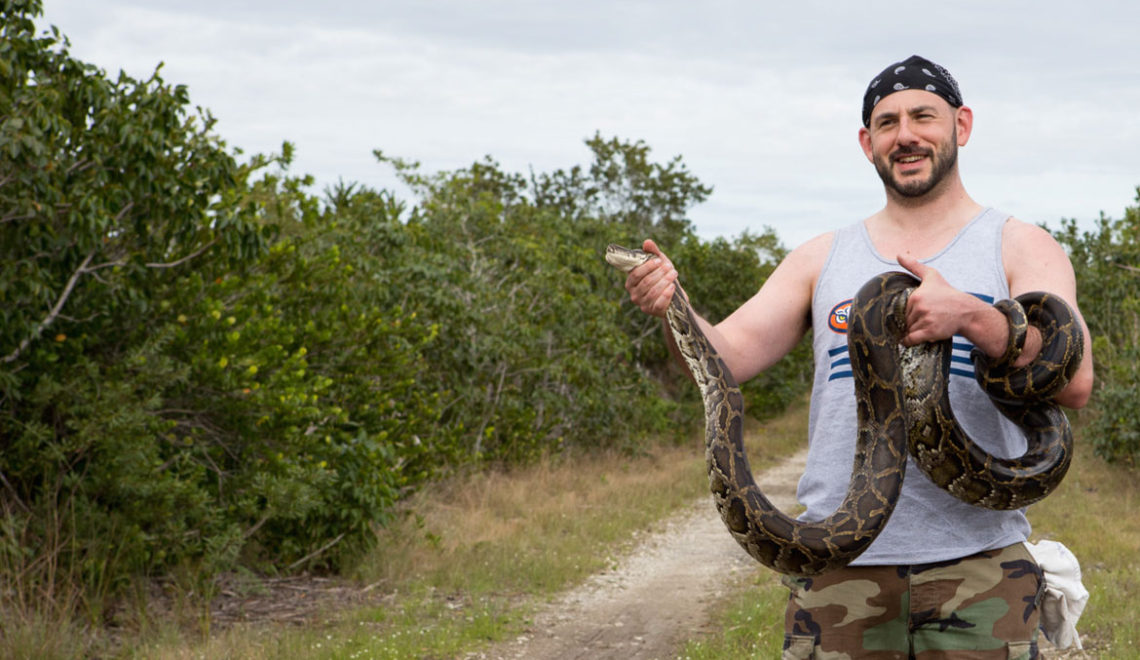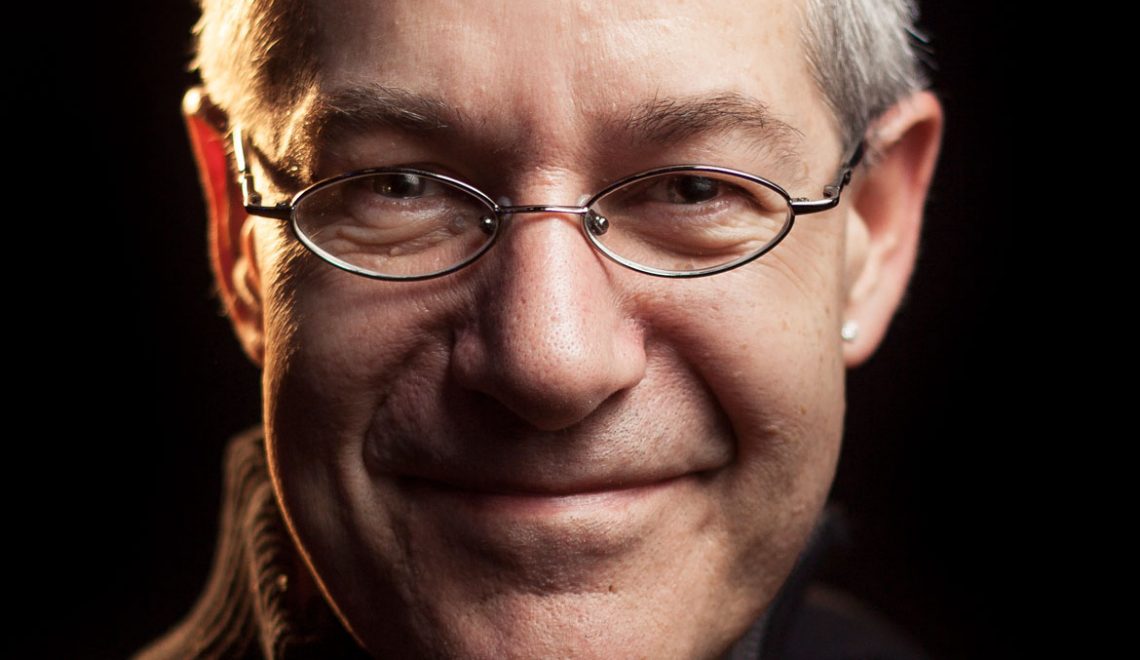
David Steen is Assistant Research Professor of wildlife ecology and conservation at Auburn University. In addition to that, he is an extremely popular communicator of science, who provides his ‘snakes-pertise’ in a plethora of popular media sources, including National Geographic, BBC Earth and Forbes. In this interview, we have touched on a wide range of subjects from his first encounter with a Timber Rattlesnake to his favourite books, spoiler alert – one of them is Desert Solitaire. It has been a pleasure to interview David and we hope you enjoy reading about his journey.
Introduction
Q: What is your dinner party monologue for when someone says “and what do you do?”
A: I’m a professor and I study wildlife ecology and conservation. Basically, I want to know how animals use the landscape and interact with each other so we can figure out how we can live on and use the land without messing things up too much for them. I am interested in all kinds of animals but most of my work is on snakes and turtles.
Early Life
Q: Could you tell us about where you grew up; were you a rural or city dweller?
A: I grew up in Greenwood Lake, Orange County, New York. It is about 45 minutes to an hour from New York City but it’s a relatively rural area, surrounded by large protected forests and bordering the Appalachian Trail. I was never far from a creek or forest where I could go camping or potentially find Timber Rattlesnakes and Black Bears.
Q: What subject(s) did you excel at in school, and which did you find most challenging?
A: I don’t remember doing well in any subjects at school, but I remember enjoying English classes and reading. Far and away I had the most difficulty with mathematics; it did not come naturally to me, if at all.
Q: Can you recall any reoccurring comments from your school reports?
A: I recall some reports indicating that I had mastered the material and others saying I spent too much looking out the window.
Q: Did you ever have a eureka moment where you thought, “this is the subject I want to study”?
A: I have always been interested in animals and science but I never really had a solid understanding of what that meant on any meaningful level. My eureka moment occurred when I took a General Ecology course as an undergraduate and we did a mark-recapture study of small mammals in a nearby forest. At that moment I began to form a real understanding of what a population was – individual animals were not just randomly careening across the landscape, they were interacting with each other, their habitat, and looking for the resources they needed to survive in a specific area.
Q: Can you remember the point at which you fell in love with your subject?
A: I have always appreciated animals and nature.
Academic Education
Regarding your undergraduate studies:
Q: Which University did you study at, and was it your first choice?
A: I attended the University of New Hampshire for my B.S.; it was my first choice because it offered the degree I was interested in and after visiting the school it just felt right; my mother was generous enough to help make it happen. I was very fortunate.
Q: What undergraduate degree did you study for at University, and in hindsight would you select the same subject again?
A: I obtained my B.S. in Zoology. I’m happy to have made that choice because it provided me with a solid background in the basic sciences, including physics and chemistry. The career I have pursued is more applied but I’ve never regretted having that broad foundation.
Q: Can you remember a University lecturer who really inspired you?
A: Most of the courses I was interested in at the University of New Hampshire were taught by Dr James Taylor; I really enjoyed the variety of ecological and herpetological courses he taught and he also gave me the opportunity to get involved in undergraduate research. Those courses and that experience were very influential to my career.
Regarding your postgraduate studies:
Q: What motivated you to further pursue academia?
A: I caught the research bug when I was an undergraduate and I knew this was something I wanted to pursue further, eventually directing my own research projects.
Q: What institution(s) did you study at in your pursuit of postgraduate education?
A: I got my M.S. at the State University of New York-College of Environmental Science and Forestry and my PhD at Auburn University.
Q: What was the title of your PhD thesis, and how would you explain your findings to a novice?
A: The title of my dissertation was something like, “Wildlife restoration via habitat management in fire-suppressed longleaf pine sandhills”. If I were to explain this research I’d probably say: The Longleaf Pine forest is a unique ecosystem that needs fire; it keeps hardwood trees out and maintains an open habitat for a lot of species that rely on it. Historically lightening would spark fires that would run through vast areas, but once we started taking over we fragmented the forest and managed it without fire. Over many years it started looking more like a hardwood forest than a longleaf pine forest and this was bad for all the species that are only found there. In recent years we’ve become more interested in conservation and restoration so the question is how do we take this longleaf pine forest that has been overrun by hardwood trees and bring it back to its former glory? Potential strategies include chainsawing all the hardwood trees, applying herbicide, or reintroducing small fires. My research showed that if you applied fire over many years, it doesn’t really matter how you start the restoration, you always got to the same place: all the animals you wanted to be there got there eventually and in good numbers. So, there was good news as long as you weren’t in a rush: restoration is A) possible and B) not complicated.
Q: If you had your time as a student again, what would you do, if anything, differently?
A: I thought I stumbled on a good balance of hard work, fun side projects, and goofing off, so I don’t have many regrets.
Research Focus
Q: Tell us about your current research focus?
A: I have a number of research projects related to the conservation and reintroduction of native species, the Indigo Snake in particular, as well as studies on better understanding the biology of some exotic species that have become invasive in the southeastern United States, like the Argentine Tegu.
Q: What do you believe is your single most important piece of research?
A: My M.S. advisor and I started a line of research demonstrating how roads and road mortality are a big conservation concern for freshwater turtles and that’s probably got more attention than anything else I’ve done so far.
Q: Within your area of study, what breakthroughs are on the horizon?
A: Snakes are secretive creatures so they are hard to study. I believe in the next few years we are going to learn a lot more about their social interactions as well as their ecological impacts as predator and prey.
Q: Let your imagination take over for a minute and tell us what you hope your successors will be researching in 2116?
A: If I’m going to make wishes, I’m going to wish that conservation biology won’t be a crisis discipline in 2116 as it is today. We are rushing to protect and understand species as they go extinct and I hope we’ve figured out by 2116 how we can share the planet and maintain large wild places.
Q: What do you feel your professional legacy will be?
A: Yikes. Hm…I don’t know. I hope I am able to contribute information that will help us conserve wildlife while investigating interesting ecological patterns in the process.
Current Projects
Q: Are you working on any extra-curricular projects at the moment, such as: books, podcasts, websites, or speaking?
A: I do a lot of science communication and outreach online on my blog, on Facebook and on Twitter. I also give lots of presentations for a variety of audiences across the country, about one every few weeks.
Advice and Tips
Q: If you could give your 18-year-old self one piece of advice, what would it be?
A: Lots of people say that high school is the best time of your life – they’re wrong.
Q: What advice would you give someone looking to start, or progress his or her career in your field?
A: Do it because you are interested in and passionate about it; not because you expect anything in return. Nothing is guaranteed. Challenge yourself and make sure you’re being pushed out of your comfort zone but recognise that you should not compromise your physical or mental health. Find a support network so you can vent as well as gain new perspectives on life and work while learning about the experiences others are going through.
Q: Which book would you say has had the biggest impact on your life?
A: Swampwalker’s Journal by David Carroll taught me new ways to observe the wildlife around us. Jaguar by Alan Rabinowitz taught me about the rigours and heartbreak of conducting field research. Desert Solitaire by Edward Abbey moved me to spend more time thinking about the personal philosophy and values that drive our desire to protect wild places. Audubon’s and Peterson’s Field Guides to the Amphibians and Reptiles opened my eyes to the fascinating diversity of animals I could find and prompted me to better understand them.
Q: If you could recommend one book to a novice in your field, what would it be?
A: I’d probably recommend Jaguar to give people a good idea of the emotional roller coaster they can expect from pursuing a career in wildlife research.
Breakthroughs happen when we study new subjects, of course, but also when we tackle old questions from different perspectives.
Q: Why do you think being a freethinker is important?
A: Nobody cares about the scientist that just repeats what everyone else has already done. Breakthroughs happen when we study new subjects, of course, but also when we tackle old questions from different perspectives.
Conclusion
Q: And finally, we are back at the dinner party. Someone offers you a drink, what do you ask for?
A: The nearest bottle of beer; cheers!
Feature photo by Kat Whitney.
If you’d like to find out more about Dr David Steen you can check out his academic profile, Twitter page and personal website.
Advertisement









